For the Jews of Eastern Europe, demons are everywhere: dancing on the rooftops in the darkness of midnight, congregating in the trees, harrowing the dead, even reaching out to try and steal away the living.
But the demons have a land of their own: a Far Country peopled with the souls of the transient dead, governed by demonic dukes, barons, and earls. When the Angel of Death comes strolling through the little shtetl of Tupik one night, two young people will be sent spinning off on a journey through the Far Country. There they will make pacts with ancient demons, declare war on Death himself, and maybe– just maybe–find a way to make it back alive.
Eastern Europe
The Sand Elephant
Paul has no one to play with. The sandbox is empty. Or is it?
As he digs and pats the sand, a shape appears: an elephant. Curling up under the elephant’s warm, sandy trunk, Paul drifts off to sleep. But then something amazing happens. The sand elephant stands up, and lifts Paul onto its back!
The sand elephant takes Paul to a wonderful land where incredible sand animals and their children are laughing and playing together. But what will happen when the wind starts to blow and the rain starts to fall?
The Three Wonderful Beggars
After predicting that hard-hearted Mark the Rich will lose his fortune to the young Vassili, three beggars save Vassili from Mark’s repeated attempts to kill him.
A Serious Thought

One night, a little boy goes to bed, but instead of sleeping, he starts thinking all kinds of thoughts. Dangerous thoughts. Admirable thoughts. Questionable thoughts. Beautiful thoughts … until a very serious thought occurs to him. If Earth is just a tiny marble floating in space, and he is but one child among many living on this marble, what does his existence matter in the grand scheme of things? Deceptively simple black-and-white drawings poignantly illustrate the boy’s journey as he considers this serious thought. This thought-provoking story by Estonian artist Jonas Taul will resonate with anyone who has ever been kept awake at night by life’s big questions.
Stars and Poppy Seeds
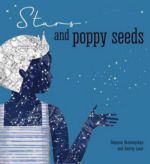
As the daughter of well-known mathematicians, Flora loves to count more than anything in the world. She counts all the things around her—the animals, grains of sand on the beach, and letters in her dad’s newspaper. When Dora looks at the Milky Way, she begins to wonder how to count the mesmerizing number of stars. Is it even possible? Is the night sky so full of stars that even all the numbers she knows would not be enough to count them? Dora soon learns that she needs to deal with such a complicated task by starting with the simplest of steps, and who knows, maybe one day she will achieve her dream.
Laika
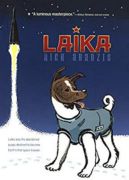
Laika was the abandoned puppy destined to become Earth’s first space traveler. This is her journey. Nick Abadzis masterfully blends fiction and fact in the intertwined stories of three compelling lives. Along with Laika there is Korolev, once a political prisoner and now a driven engineer at the top of the Soviet space program, and Yelena, the lab technician responsible for Laika’s health and life. This intense triangle is rendered with the pitch-perfect emotionality of classics like Because of Winn Dixie, Shiloh, and Old Yeller. Abadzis gives life to a pivotal moment in modern history, casting light on the hidden moments of deep humanity behind history. Laika’s story will speak straight to your heart.
A Royal Ride
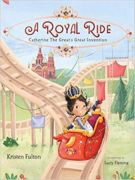
Empress Catherine the Great, Queen of Russia loved her country, especially the snowy winters. Giant ice slides meant daring drops and thrilling rides for all!
The Gothamites
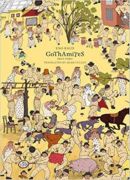
Tired of being pursued world-wide for their wise advice, the Gothamites decide to embrace stupidity and tend to their own affairs.
Robinson
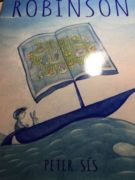
Robin and his friends are planning to dress up as pirates for their school’s annual costume party, but instead his mother creates a Robinson Crusoe costume for him, and while the adults love it, his friends are less welcoming.
Symphony for the City of the Dead
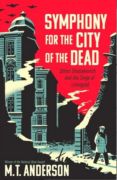
In September 1941, Adolf Hitler’s Wehrmacht surrounded Leningrad in what was to become one of the longest and most destructive sieges in Western history—almost three years of bombardment and starvation that culminated in the harsh winter of 1943–1944. More than a million citizens perished. Survivors recall corpses littering the frozen streets, their relatives having neither the means nor the strength to bury them. Residents burned books, furniture, and floorboards to keep warm; they ate family pets and—eventually—one another to stay alive. Trapped between the Nazi invading force and the Soviet government itself was composer Dmitri Shostakovich, who would write a symphony that roused, rallied, eulogized, and commemorated his fellow citizens—the Leningrad Symphony, which came to occupy a surprising place of prominence in the eventual Allied victory.
See the review at WOW Review, Volume 8, Issue 4
